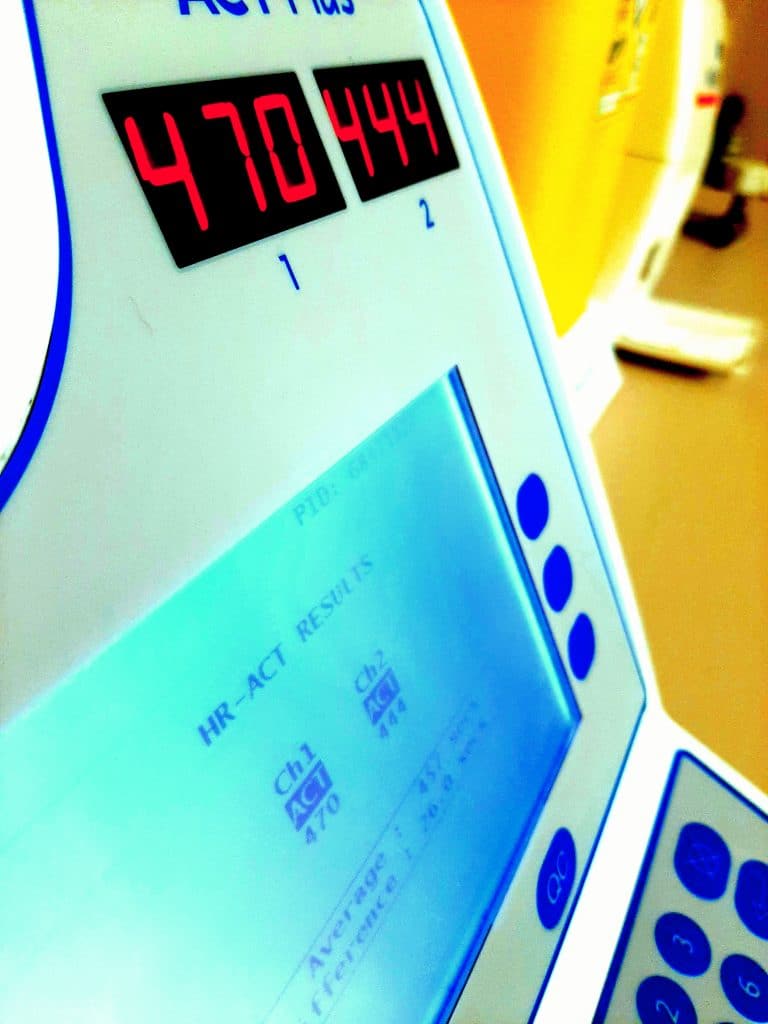Antiphospholipid Syndrome and Cardiac Bypass: The Careful Balance between Clotting and Bleeding

Antiphospholipid syndrome (APS) is an acquired autoimmune condition characterized by the presence of antiphospholipid antibodies (lupus anticoagulant, anticardiolipin antibody, and anti-β2 glycoprotein-I antibody) which leads to clinical thrombosis via a multifactorial mechanism of action. Despite the propensity to form clot in vivo, these antibodies interfere with the assembly of the prothrombinase complex on phospholipids in in vitro assays, leading to prolongation of activated clotting time and activated partial thromboplastin time. This disconnect between what occurs in vivo and in vitro makes monitoring anticoagulation during cardiac surgery particularly complex. We present a patient with APS undergoing coronary artery bypass grafting with cardiopulmonary bypass. We delineate our strategy for managing anticoagulation in the presence of this syndrome using the Hepcon Hemostasis Management System Plus (Medtronic, Inc. Minneapolis, MN) device by targeting whole blood heparin concentration to monitor anticoagulation.
